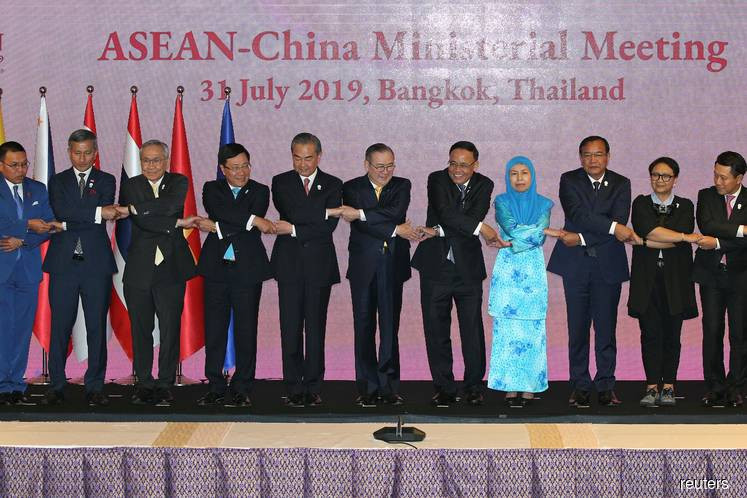The United States Chamber of Commerce said U.S. businesses need more access to Asian markets but not through the Regional Comprehensive Economic Partnership agreement, the world's largest trade bloc.
It made this observation in response to the signing this past weekend of the partnership by its 15 founding Asian member-states. The partnership will lower or eliminate tariffs over a 20-year period. It will also streamline customs procedures and replace a number of bilateral trade agreements with one set of rules.
It will establish rules on investments, competition and intellectual property, including digital copyright. The partnership, however, does not have provisions on labor and environmental standards.
On the other hand, the partnership establishes the Asia-Pacific as the world's largest trading bloc, one which is larger than the European Union. It accounts for $26.2% of global output, which is equivalent to 30% of the global economy.
The partnership was signed by the 10 member-states of the Association of Southeast Asian Nations and Australia, China, Japan, New Zealand and South Korea. It does not include the United States.
The chamber welcomed the extensive liberalization provided by the partnership. The pact will be welcome to U.S. exporters, workers and farmers needing greater access to Asian markets. But it said Washington shouldn't join the partnership.
"Given the shortcomings of the partnership, we would not recommend the United States joining," said Myron Brilliant, chamber executive vice president.
"The United States should, however, adopt a more forward-looking, strategic effort to maintain a solid U.S. economic presence in the region."
Brilliant pointed out the market share of U.S. companies in the Asia-Pacific has declined despite a steady rise in U.S. exports to the region. He said American business owners understand the importance of Asia-Pacific to their growth. He cited forecasts showing an average Asian growth rate of more than 5% in 2021.
Apart from not being a part of RCEP, the U.S. is also not a member of the Trans-Pacific Partnership, which was supposed to be the U.S.-led counterpart to RCEP.
President Donald Trump in early 2017 quit TPP for no clear reason other than the pact was negotiated by former president Barack Obama. Brilliant said Trump hadn't concluded any comprehensive new trade deals in Asia to replace TPP.
India was invited to join but withdrew from the talks 2019 out of concerns the elimination of tariffs would open its markets to a flood of cheap imports from China. The bloc, however, has said it will welcome India should this country decide to join later on.






